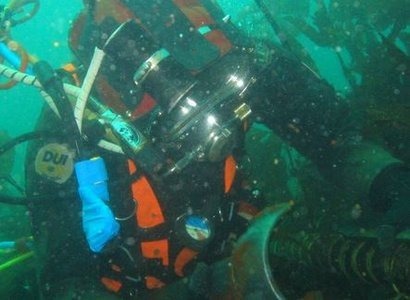
The Sub-sea Cable Lifecycle Study is aimed at improving the industry’s understanding of how best to specify and manage subsea cables for wave and tidal energy projects, by investigating how the cables installed at the EMEC test sites in Orkney have been performing since installation. It provides a summary of the review in order to inform the marine renewable energy industry on factors affecting the integrity and performance of sub-sea cables.
EMEC has collected a considerable amount of data on the structural integrity of subsea cables through routine surveys conducted by remotely operated vehicles (ROVs) and divers as well as comprehensive electrical cable testing. The data has also been reviewed with regard to installation methods, faults and operational life of the cables.
“EMEC has built up a colossal amount of data since we set up the test centre 12 years ago” said Matthew Finn, Senior Business Development Manager. “As well as supporting our own operations, and those of our developer clients, we’re delighted to see our data put to use across other projects that will support the development of the nascent marine renewables industry.”
Mr Finn added that the strong tidal conditions at the test site – up to 8 knots at peak tide – provide a unique opportunity for the testing of components, equipment, devices and supporting infrastructure in real sea conditions.
The study found that the sub-sea cables installed at the EMEC test sites appear to be in extremely good condition considering the environment in which they are deployed. The report concludes that in sites with high tidal flow the greatest risk to sub-sea cables is the effect of cable strumming - vibration caused by the flow of water past the cable.
For additional information:

